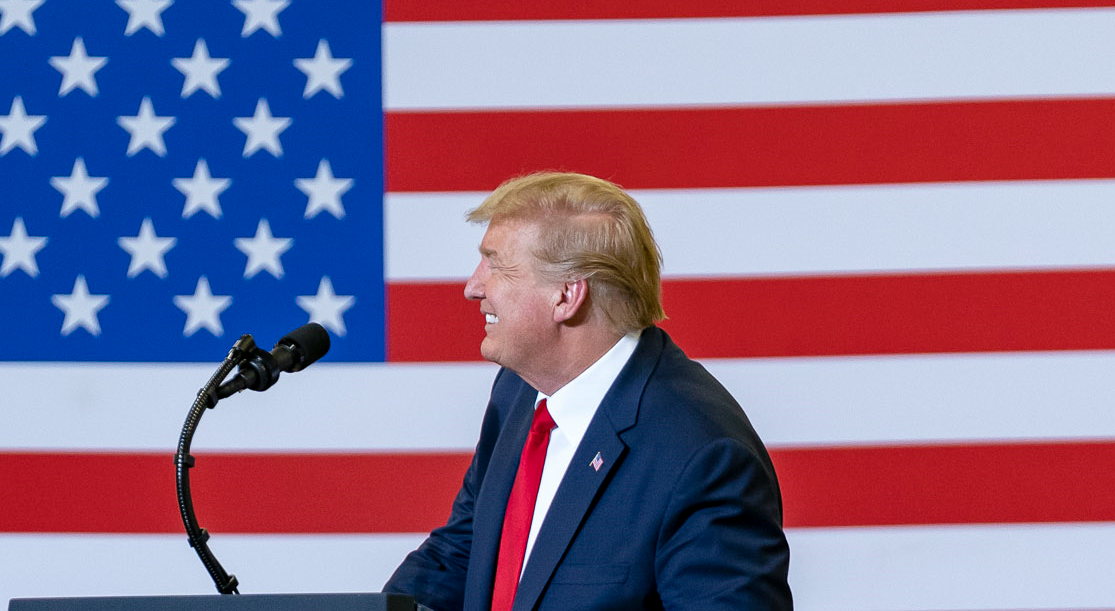Analyzing Trump's Proposal: Can Tariffs Substitute Income Taxes?

Table of Contents
The Economic Theory Behind Tariff-Based Taxation
H3: Understanding Tariffs and Their Impact:
Tariffs, essentially taxes on imported goods, serve as a crucial tool in international trade policy. They generate revenue for the government by increasing the price of foreign products, making domestically produced goods comparatively more attractive. However, this revenue generation comes at a cost. Tariffs lead to higher prices for consumers, reduced purchasing power, and potentially decreased overall economic efficiency. Understanding the principles of supply and demand, and the elasticity of demand for both imported and domestically produced goods, is crucial to analyzing the overall impact.
- Definition: A tariff is a tax imposed on imported goods and services.
- Revenue Generation: Tariffs directly increase government revenue, funding public services and programs.
- Impact on Consumers: Higher prices for imported goods reduce consumer purchasing power.
- Impact on Businesses: Increased costs for imported inputs can impact domestic production and competitiveness.
H3: The Mechanics of a Tariff-Based Tax System:
Transitioning from a complex income tax system to a solely tariff-based system presents monumental logistical hurdles. The current intricate network of tax brackets, deductions, and credits would need to be completely dismantled and replaced with a vastly different mechanism. This would likely result in significant revenue shortfalls, requiring either drastic spending cuts or the introduction of complementary taxes to bridge the gap.
- Logistical Challenges: Implementing and enforcing a solely tariff-based system would require a massive bureaucratic overhaul.
- Revenue Shortfalls: Reliance solely on tariffs might not generate sufficient revenue to fund government operations.
- Administrative Burdens: Managing and collecting tariffs on a massive scale would be incredibly complex.
- Loopholes and Avoidance: The potential for evasion and manipulation of tariff systems is high.
H3: Comparative Analysis with Income Taxes:
A critical aspect of this analysis involves comparing the equity and efficiency of income taxes versus tariffs. Income taxes, particularly progressive systems, aim to distribute the tax burden based on income levels. Tariffs, conversely, are often regressive, disproportionately affecting lower-income households who spend a larger percentage of their income on imported goods. Furthermore, the efficiency of revenue collection differs substantially. Income tax systems, while complex, are relatively well-established and have mechanisms to prevent avoidance. Tariff systems, on the other hand, are susceptible to evasion and manipulation through trade practices.
- Equity: Income taxes can be progressive; tariffs tend to be regressive.
- Efficiency: Income tax collection, while imperfect, is generally more efficient than tariff collection.
- Economic Growth: The impact on investment and economic growth varies significantly between the two systems.
Potential Benefits and Drawbacks of Substituting Income Taxes with Tariffs
H3: Potential Benefits (and counterarguments):
Proponents of replacing income taxes with tariffs might point to increased government revenue as a key benefit. However, this hinges on the assumption that sufficient tariffs can be levied without triggering devastating trade wars or significantly harming domestic businesses reliant on imported goods. Similarly, protection of domestic industries is often cited, but this could lead to inefficiencies and higher prices for consumers. Finally, a reduction in the tax burden for some individuals (those who don't directly pay tariffs) is a possible outcome, although it could be very limited.
- Increased Government Revenue: Highly dependent on the level of tariffs and international trade relations.
- Protection of Domestic Industries: Could lead to higher prices and reduced competitiveness.
- Reduced Tax Burden (for some): Limited to individuals who do not purchase imported goods subject to tariffs.
H3: Potential Drawbacks (and counterarguments):
The drawbacks are substantial. Higher consumer prices are practically guaranteed as tariffs increase the cost of imports. The potential for trade wars and retaliatory tariffs is a serious risk, potentially leading to significant damage to the global economy. Furthermore, the disproportionate impact on low-income households demands careful consideration and potential mitigating strategies. Any perceived benefits must be carefully weighed against the significant negative consequences.
- Increased Prices for Consumers: A direct and unavoidable consequence of higher tariffs.
- Trade Wars and Retaliatory Tariffs: A major risk with potentially devastating economic repercussions.
- Negative Impact on International Trade Relations: Could damage global economic cooperation.
- Disproportionate Impact on Low-Income Households: Requires targeted policies to address the regressive nature of tariffs.
Real-World Examples and Case Studies
Historical examples, such as the high tariff policies of the early 20th century or certain developing nations' heavy reliance on tariffs, offer valuable insights. Analyzing these cases – their successes and failures – provides a framework for evaluating the potential consequences of a complete shift to a tariff-based tax system. Comparing these historical examples to Trump's proposed approach highlights the differences in context and potential outcomes. The availability of relevant data and statistical analysis for these historical cases is crucial to reinforcing the arguments.
Conclusion: Is Replacing Income Taxes with Tariffs a Viable Option?
Replacing income taxes with tariffs is a highly complex and risky proposition. While proponents point to potential benefits such as increased government revenue and protectionist effects, the overwhelming evidence points to significant drawbacks, including increased consumer prices, the potential for trade wars, and a regressive impact on low-income households. The logistical complexities and administrative burdens associated with a complete transition further highlight the impracticality of this approach. The economic implications of such a drastic shift could be profoundly negative. A comprehensive understanding of the nuances and risks involved is critical. Further research and robust public discussion on the implications of tariffs substituting income taxes are crucial for developing sound and informed economic policies. For more information on international trade and taxation policies, consult [link to relevant resources].

Featured Posts
-
 Michael Sheens Million Pound Giveaway Details Revealed
May 01, 2025
Michael Sheens Million Pound Giveaway Details Revealed
May 01, 2025 -
 Analysis Duponts 11 Point Contribution To Frances Rugby Win Over Italy
May 01, 2025
Analysis Duponts 11 Point Contribution To Frances Rugby Win Over Italy
May 01, 2025 -
 Wall Street Banks Sell Final Portion Of Elon Musks X Debt Exclusive
May 01, 2025
Wall Street Banks Sell Final Portion Of Elon Musks X Debt Exclusive
May 01, 2025 -
 Michael Sheen And Channel 4s Debt Documentary A Copyright Lawsuit
May 01, 2025
Michael Sheen And Channel 4s Debt Documentary A Copyright Lawsuit
May 01, 2025 -
 Becciu Il 22 Settembre Inizia L Appello La Sua Dichiarazione
May 01, 2025
Becciu Il 22 Settembre Inizia L Appello La Sua Dichiarazione
May 01, 2025
